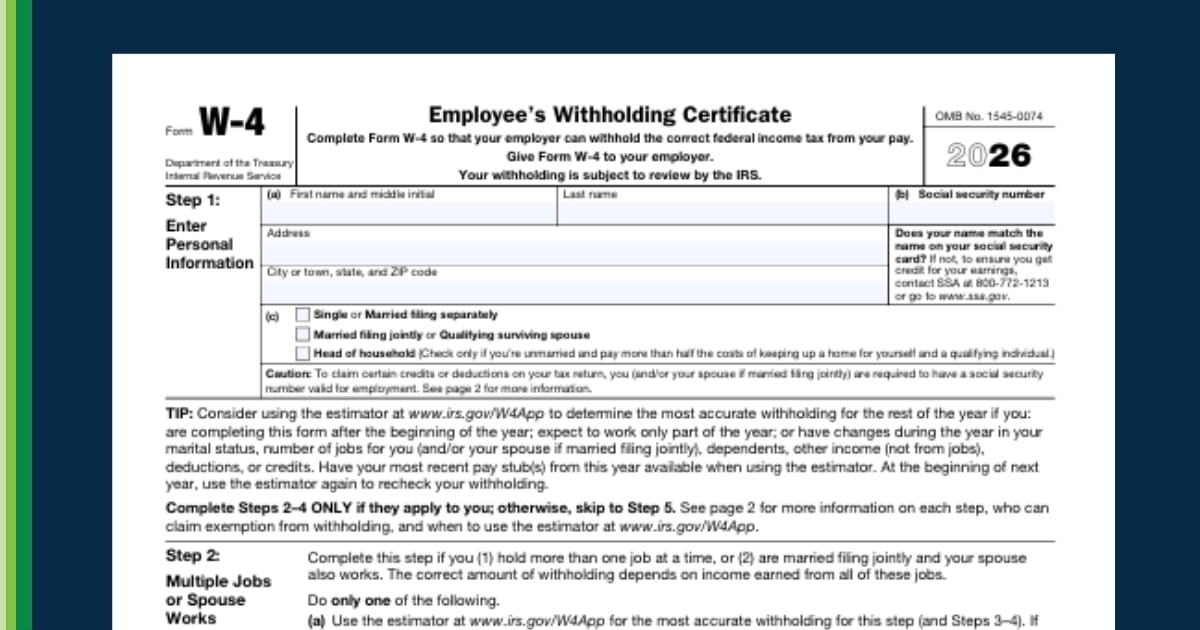The holiday season is for joy, relaxation—and the occasional payroll headache for employers. Did you know that holiday pay isn’t federally mandated? Under the Fair Labor Standards Act (FLSA), employers have the freedom to decide their holiday pay policies.
Setting your company’s holiday pay policies is one thing—ensuring your payroll and HR system can handle them is another. Thankfully, with the right tools, even the trickiest calculations can feel as effortless as sipping cocoa by the fire.
Let’s explore the details.
⚠️Note: This information is for informational purposes only and does not constitute formal tax, legal, or compliance advice. Always consult with qualified tax advisors, legal counsel, and your organization’s internal teams for guidance specific to your situation. Additional regulations may apply. For the most accurate and up-to-date information, refer to official government resources and regulatory agencies.
The 2025 Federal Holiday Lineup
Most employers recognize federal holidays as paid time off (PTO) or adjust schedules to support their workforce. Here’s what’s on the calendar for 2025:
|
Date |
Holiday |
|
Wednesday, January 01 |
New Year’s Day |
|
Monday, January 20 |
Birthday of Martin Luther King, Jr. |
|
Monday, February 17 |
President’s Day |
|
Monday, May 26 |
Memorial Day |
|
Thursday, June 19 |
Juneteenth National Independence Day |
|
Friday, July 04 |
Independence Day |
|
Monday, September 01 |
Labor Day |
|
Monday, October 13 |
Columbus Day |
|
Tuesday, November 11 |
Veterans Day |
|
Thursday, November 27 |
Thanksgiving Day |
|
Thursday, December 25 |
Christmas Day |
With Greenshades, you can easily configure your holiday schedule in the platform. Employees can check holiday details on the shared HR calendar or submit PTO requests in the self-service portal, giving everyone one less thing to stress about.
Religious Holidays and Compliance Made Easy
Supporting your team’s religious observances doesn’t have to be complicated. Under Title VII of the Civil Rights Act of 1964, businesses with 15 or more employees must reasonably accommodate religious holidays unless it causes undue hardship. While you’re not required to pay for these holidays, providing flexibility can go a long way in building trust and goodwill. Greenshades makes it easy to set up time codes for religious holidays, ensuring everyone feels respected and included.
State-Specific Holiday Policies
States like Massachusetts and Rhode Island play by their own rules when it comes to holiday pay.
- Massachusetts’ Blue Laws requires premium pay on certain holidays.
- Rhode Island’s rules mandate time and a half on Sundays and legal holidays that are included in the RI General Law 25-3.
With Greenshades, you can stay compliant by tailoring settings to meet these nuanced requirements.
Other Organizational Holidays
In addition to formal and cultural holidays, employers can offer optional holidays as an employee benefit. For example:
- Personal Holidays: Paid days off employees can use for any reason, such as birthdays, anniversaries, or personal milestones.
- Floating Holidays: A set number of days employees can take off, aligned with their personal or cultural preferences.
- Company-Specific Holidays: Unique days chosen by the company to celebrate milestones or encourage team bonding.
- Volunteer or Community Service Days: Paid time off for employees to participate in volunteer work or community service activities.
Offering these options enhances flexibility, shows you care, and fosters a more inclusive workplace.
Types of Holiday Pay: It’s Not Just a Bonus
Holiday pay can build morale and loyalty while keeping operations running smoothly during busy times. Types of pay you might offer include:
- Time and a Half: This classic option rewards employees with 1.5x their usual rate for holiday shifts. A great way to boost morale!
- Shift Differentials: Customize rates for holiday work to suit your business needs.
- Normal Pay: Treat the holiday as a standard workday with regular pay.
- Paid Time Off: Give employees the day off with pay so they can enjoy the holidays without dipping into their PTO balance.
With Greenshades, you can set these options to match your company policies, ensuring accuracy and fairness every time.
What to Do When Overtime Pay and Holiday Pay Overlaps
Holiday hours overlapping with overtime (OT) can be tricky. Unless exempt, employees covered by the FLSA must receive overtime pay for hours worked over 40 in a workweek at a rate of at least time and one-half their regular rate of pay. However, the FLSA does not require overtime pay for work on Saturdays, Sundays, holidays, or regular days of rest unless overtime is actually worked on those days.
This means:
- Employers are not obligated to count holiday hours toward the 40-hour overtime threshold unless the employee works beyond 40 hours during the workweek.
- If an employee takes paid time off (PTO) for a holiday, those hours do not typically count toward overtime calculations, as they are not hours "worked."
Example: Overtime and Holiday Pay in Action
Suppose an employee works on a holiday and also works overtime during the same workweek. In this case:
- The holiday pay rate—whether time and a half, shift differentials, or regular pay—is factored into the total wages.
- Overtime calculations are based on hours worked beyond the 40-hour threshold, including the holiday hours worked.
Greenshades makes this process seamless by automatically applying FLSA-compliant rules to calculate overtime accurately. The system ensures that holiday pay and overtime pay are calculated correctly, reducing manual errors and helping your organization stay compliant with labor laws.
Advanced Greenshades Feature: Configurable Overtime Calculations
Here’s where Greenshades really shines. Our advanced tools let you tailor holiday pay and overtime (OT) rules to fit your business. Here’s what our solution provides:
- Configurable Holiday Pay and OT Rules: Decide if holiday hours count toward OT thresholds with just a few clicks.
- Real-Time Adjustments: Need to update a policy? No problem—adjust and recalculate as needed.
- Detailed Reporting: Access clear breakdowns of holiday pay, OT, and regular hours for better visibility and audit readiness.
The Bottom Line
Holiday pay isn’t just another payroll detail—it’s an opportunity to show your employees that their contributions matter. By providing flexible, fair, and compliant holiday pay policies, you’re not only boosting morale but also positioning your organization as an employer of choice.
With Greenshades, you can confidently manage holiday pay and overtime through configurable tools designed to fit your unique needs. Automate holiday pay configurations, stay compliant with federal and state regulations, and ensure your employees are paid accurately and on time.
Ready to take the stress out of holiday payroll? Contact us today to explore Greenshades’ tools that make holiday pay hassle-free and effective.



























